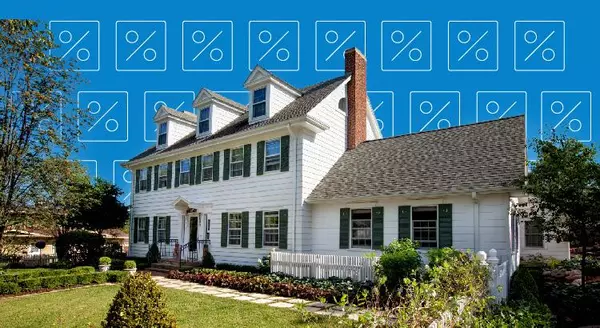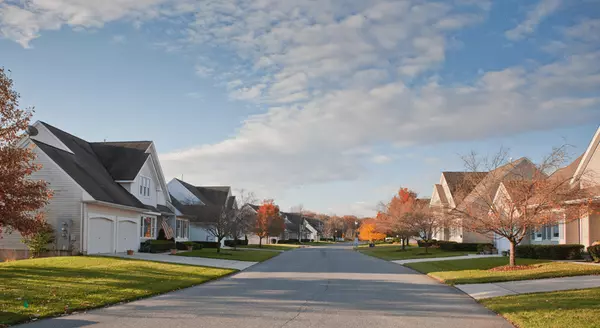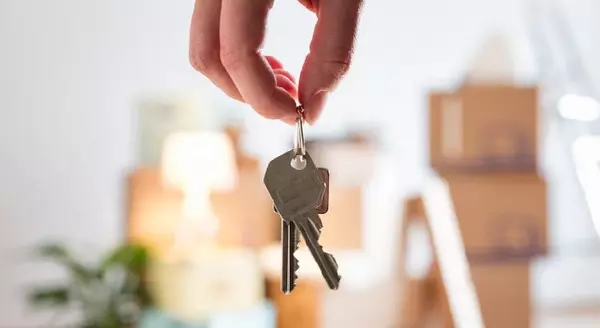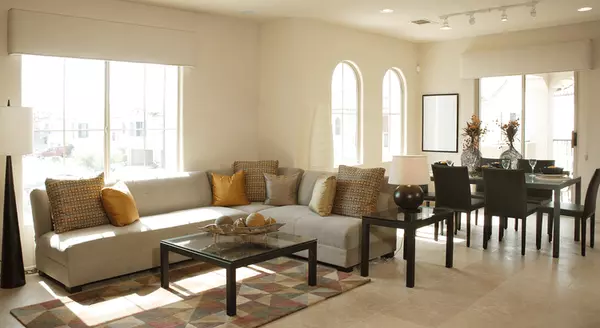
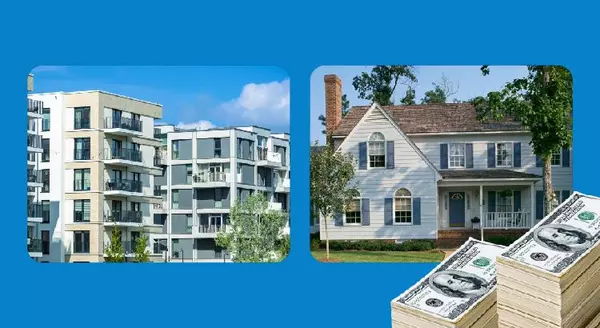
The Big Difference Between Renter and Homeowner Net Worth
Some HighlightsIf you’re torn between renting or buying, don’t forget to factor in the wealth-building power of homeownership.Unlike renters, homeowners gain equity as they pay their mortgage and as home values rise. That’s why, on average, a homeowner’s net worth is nearly 40x higher than a renter’s. Connect with an agent if you want to learn more about the financial benefits of homeownership or the programs that can help make buying possible.
Read More

Should You Sell Your House or Rent It Out?
When you’re ready to move, figuring out what to do with your house is a big decision. And today, more homeowners are considering renting their home instead of selling it. Recent data from Zillow shows about two-thirds (66%) of sellers thought about renting their home before listing, with nearly a third (28%) taking that possibility seriously. Compared to 2021, when fewer than half (47%) of homeowners considered renting before selling, it’s clear this trend is on the rise.So, should you sell your house and use the money toward your next home or keep it as a rental to build long-term wealth? Let’s walk through some important questions to help you determine the right path for your financial and lifestyle goals. Is Your House a Good Fit for Renting?Before you decide what to do, it's important to think about if it would make a good rental in the first place. For instance, if you’re moving far away, managing ongoing maintenance could become a major hassle. Other factors to consider are if your neighborhood is ideal for rentals and if your house needs significant repairs before it’s ready for tenants.If any of these situations sound familiar, selling might be a more practical choice.Are You Ready for the Realities of Being a Landlord?Managing a rental property involves more than collecting monthly rent. It’s a commitment that can be time-consuming and challenging.For example, you may get maintenance calls at all hours of the day or discover damage that needs to be repaired before a new tenant moves in. There’s also the risk of tenants missing payments or breaking their lease, which can add unexpected stress and financial strain. As Redfin notes: “Landlords have to fix things like broken pipes, defunct HVAC systems, and structural damage, among other essential repairs. If you don't have a few thousand dollars on hand to take care of these repairs, you could end up in a bind.”Do You Understand the Costs?If you’re considering renting primarily for passive income, remember, there are additional costs you should anticipate. As an article from Bankrate explains:Mortgage and Property Taxes: You still need to pay these expenses, even if the rent doesn’t cover all of it.Insurance: Landlord insurance typically costs about 25% more than regular home insurance, and it’s necessary to cover damages and injuries.Maintenance and Repairs: Plan to spend at least 1% of the home’s value annually, more if the house is older.Finding a Tenant: This involves advertising costs and potentially paying for background checks.Vacancies: If the property sits empty between tenants, you’ll lose rental income and have to cover the cost of the mortgage until you find a new tenant.Management and HOA Fees: A property manager can ease the burden, but typically charges about 10% of the rent. HOA fees are an additional cost too, if applicable.Bottom LineTo sum it all up, selling or renting out your home is a personal decision. Make sure to weigh the pros and cons carefully and consult with professionals so you feel supported and informed as you make your decision. A real estate agent can be a great person to go to for advice.
Read More
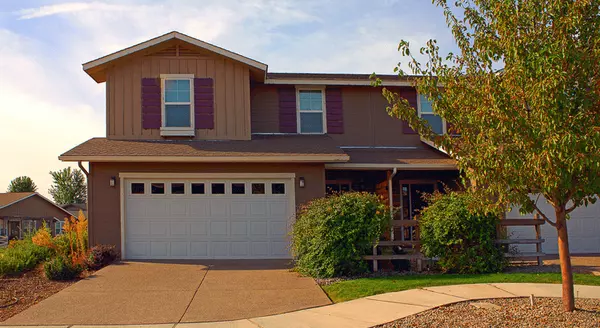
More Homes, Slower Price Growth – What It Means for You as a Buyer
There are more homes on the market right now than there have been in years – and that could be a game changer for you if you’re ready to buy. Let’s look at two reasons why.You Have More Options To Choose FromAn article from Realtor.com helps explain just how much the number of homes for sale has gone up this year:“There were 29.2% more homes actively for sale on a typical day in October compared with the same time in 2023, marking the twelfth consecutive month of annual inventory growth and the highest count since December 2019.”And while the number of homes on the market still isn’t quite back to where it was in the years leading up to the pandemic, this is definitely an improvement (see graph below):With more homes available for sale now, you have more options to choose from. As Hannah Jones, Senior Economic Research Analyst at Realtor.com, explains:“Though still lower than pre-pandemic, burgeoning home supply means buyers have more options . . .”That means you have a better chance of finding a house that meets your needs. It also means the buying process doesn’t have to feel quite as rushed, because more options on the market means you’ll likely face less competition from other buyers.Home Price Growth Is SlowingWhen there aren’t many homes for sale, buyers have to compete more fiercely for the ones that are available. That’s what happened a few years ago, and it’s what drove prices up so quickly.But now, the increasing number of homes on the market is causing home price growth to slow down (see graph below):In certain markets, the number of available homes has not only bounced back to normal, but has even surpassed pre-pandemic levels. In those areas, home price growth has slowed or stalled completely. As Lance Lambert, Co-Founder of ResiClub, explains:“Generally speaking, housing markets where active inventory has returned to pre-pandemic 2019 levels have seen home price growth soften or even decline outright from their 2022 peak.”Slower or stalled price growth could give you a better chance of finding something within your budget. As Dr. Anju Vajja, Deputy Director at the Federal Housing Finance Agency (FHFA), says:“For the third consecutive month U.S. house prices showed little movement . . . relatively flat house prices may improve housing affordability.”But remember, inventory levels and home prices are going to vary by market.So, having a real estate agent who knows the local area can be a big advantage. They can help you understand the trends in your community, which can make a real difference in finding a home that fits your needs and budget.Bottom LineMore housing options – and the slower home price growth they bring – can help you find and buy a home that works for your lifestyle and budget. So don’t hesitate to reach out to a local real estate agent if you want to talk about the growing number of choices you have right now.
Read More

What’s Motivating Homeowners To Move Right Now
Over the past few years, some homeowners have decided to delay their move because they don’t want to sell and take on a higher mortgage rate on their next home. Maybe you’re thinking the same thing. And honestly, that’s no surprise. It’s a very common roadblock and is one of the biggest factors that’s kept the number of homes on the market so low for so long. But a growing number of homeowners are deciding they just can’t wait any longer. Often, it’s because of personal or lifestyle change. As Redfin explains:“Some homeowners are opting to bite the bullet and give up their low rate in order to move. Many are selling because a major life event like a job change, or divorce . . .”If you’re weighing the decision to move, take a look at some of the top reasons others are choosing to sell. You might find those are reason enough for you to move now, too.It’s Time for a Change A new job in a different city, a desire to be closer to family, or simply wanting a change of scenery can all spark the need to sell. Let’s say you’ve landed a great job offer that requires relocating, listing your current home quickly may be the next logical step.There’s Just Not Enough Space in Your Current HouseSometimes, your current home just doesn’t fit your lifestyle anymore. A growing family, the need for a home office, or more room for entertaining can all drive the decision to upgrade to a larger space.As an example, if you live in a condo and have a baby on the way, selling might be the next best move so you can find a larger home that suits your needs.Retirement or Wanting To DownsizeOn the flip side, some homeowners are ready to downsize. This could be due to children moving out, retirement, or simply wanting less to maintain.If you’re newly retired and dreaming of a simpler lifestyle, downsizing to a smaller home could free up both time and resources to enjoy this new chapter of life.Changes in Relationship StatusBig changes like divorce, separation, or marriage often lead to a need for new living arrangements. If you just went through a divorce, selling the house you once shared may allow both of you to move forward and find a living situation that works better for you now.Health and Mobility NeedsHealth concerns, especially those that affect mobility, can also drive the decision to sell. A home that once worked well might no longer suit your needs.If this sounds like your experience right now, selling your current home to move into a more accessible space, or even using the proceeds for assisted living, could significantly improve your quality of life.Bottom LineSelling your home isn’t just about market conditions or mortgage rates—it’s also about making the best decision for your lifestyle and future. As Bankrate says:“Deciding whether it’s the right time to sell your home is a very personal choice. There are numerous important questions to consider, both financial and lifestyle-based . . . Your future plans and goals should be a significant part of the equation.” If a major life change has you thinking about moving, now might still be the right time to sell. Work with a trusted real estate professional to help you navigate the process.
Read More
Categories
Recent Posts
